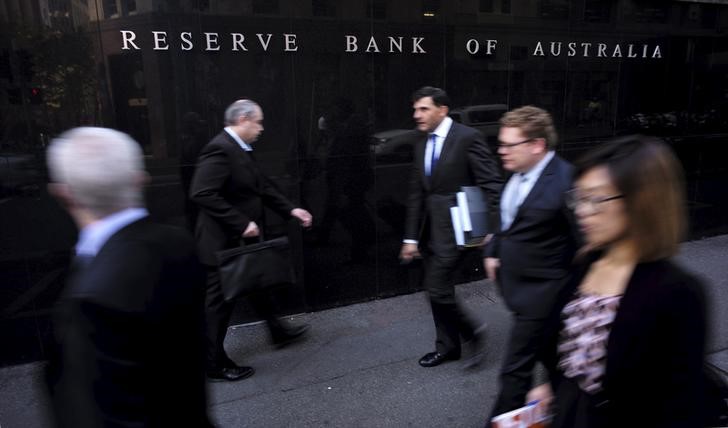(Adds detail, quotes)
SYDNEY, Feb 12 (Reuters) - Australia should continue to grow at a moderate pace as a fall in mining investment is offset by growth elsewhere, and whether the current turmoil in global markets will scuttle this view remains to be seen, the country's top central banker said on Friday.
In opening remarks to the House of Representatives Standing Committee on Economics, Reserve Bank of Australia (RBA) Governor Glenn Stevens also reiterated there was scope to cut interest rates further if necessary.
"The fall in mining investment spending will continue for at least one more year, though it is probably having its most significant effect on the rate of growth now. Other areas of demand are expected to add to growth. The net effect of all this is likely to be continuing expansion at a moderate pace," Stevens told legislators in his twice-yearly testimony.
"One key question will be whether the recent financial turbulence itself will have a material negative effect on aggregate demand - in Australia or abroad. I don't expect that we will be able to answer that question for a little while yet."
Stevens said inflation is unlikely to be a problem over the next year or so, giving the RBA "flexibility to ease further, should that be helpful".
The RBA left the cash rate unchanged at a record low 2.0 percent last week, when it met for the first time in 2016. It has been on hold since the last cut in May.
He declined to give any guidance on the future level of the RBA's cash rate.
Stevens said record low rates and a weaker Australian dollar have helped to sustain growth, though he seemed to suggest the currency could fall even further.
"The Australian dollar is around the same level now as when we last met with the Committee, though commodity prices are lower," he said.
Last month, the Aussie fell below 69 U.S. cents to lows not seen since 2009. While it has stabilised around 71 cents, the decline from lofty peaks above $1.10 has helped fuel Australia's export competitiveness.
"In summary then, the economy is continuing to grow at a modest pace, in the face of considerable adjustment challenges. It has apparently been generating more employment growth and lower unemployment than we expected, while inflation has remained quite low," he said.
On Australia's biggest trading partner, China, Stevens noted it has become more of a concern for many observers.
"The more recent anxiety is probably best described as greater uncertainty over the intentions of Chinese policymakers and over whether they will be able to carry off the economic transition China needs. This anxiety has been reflected in capital flows," he said.
